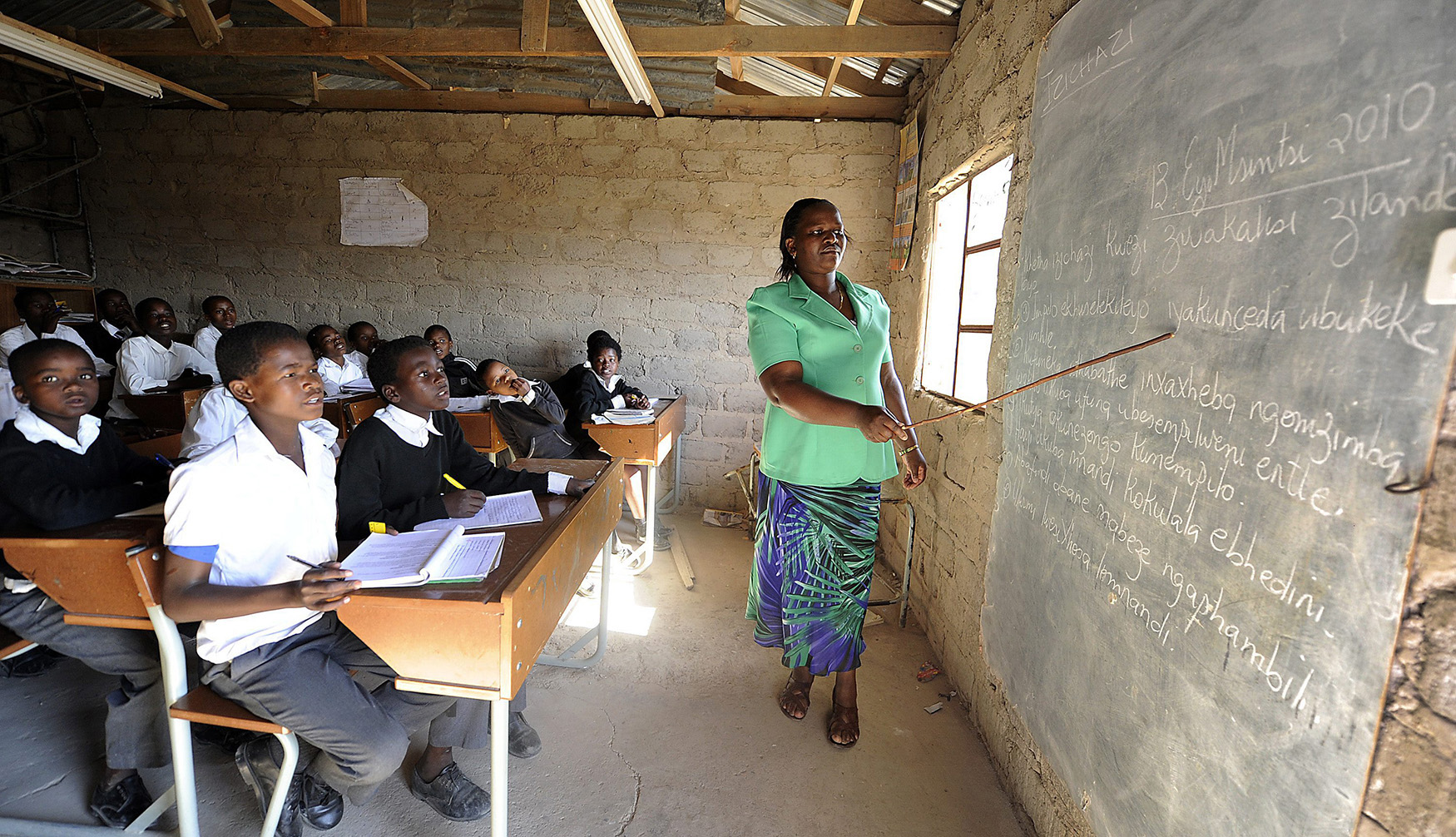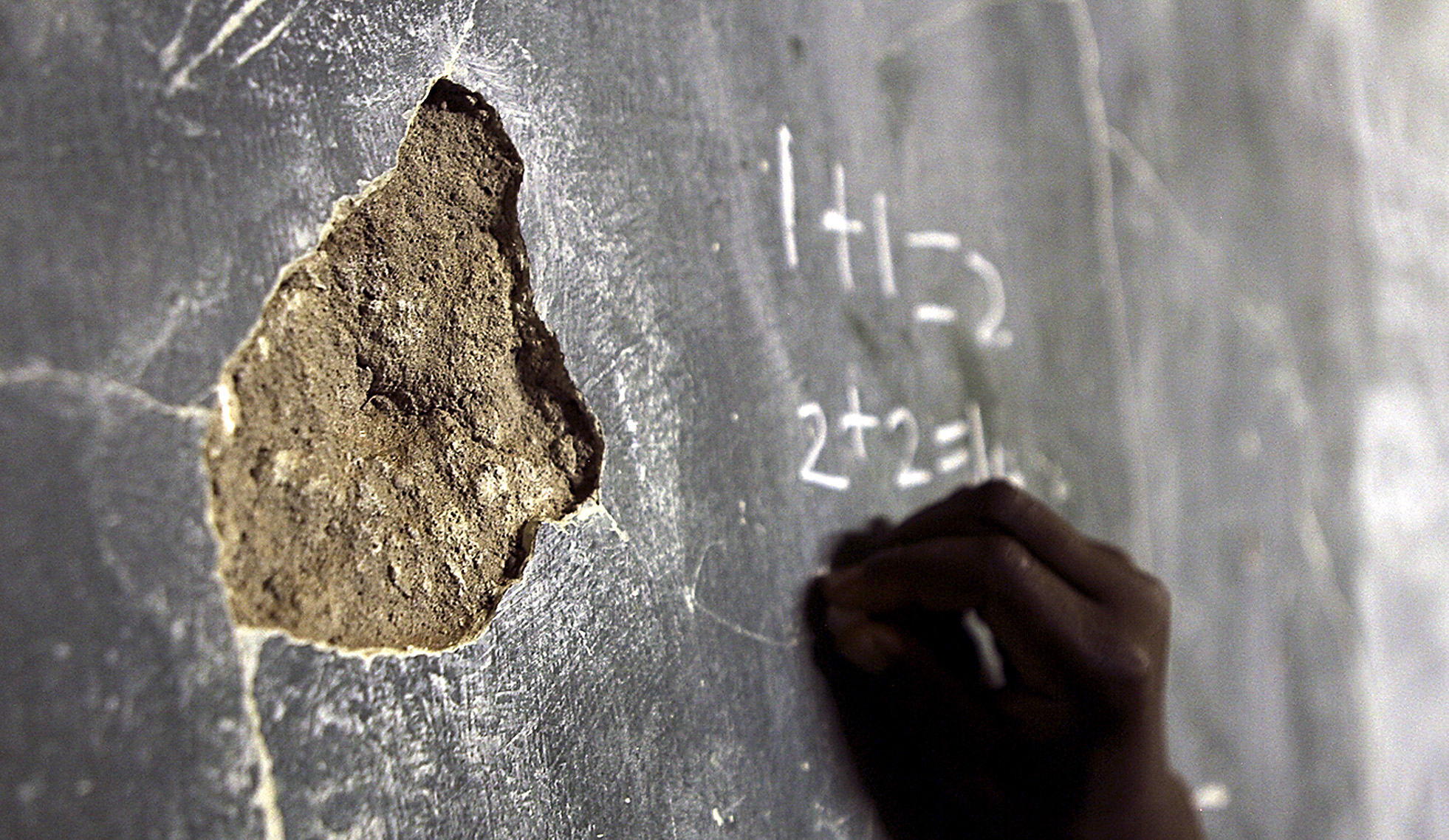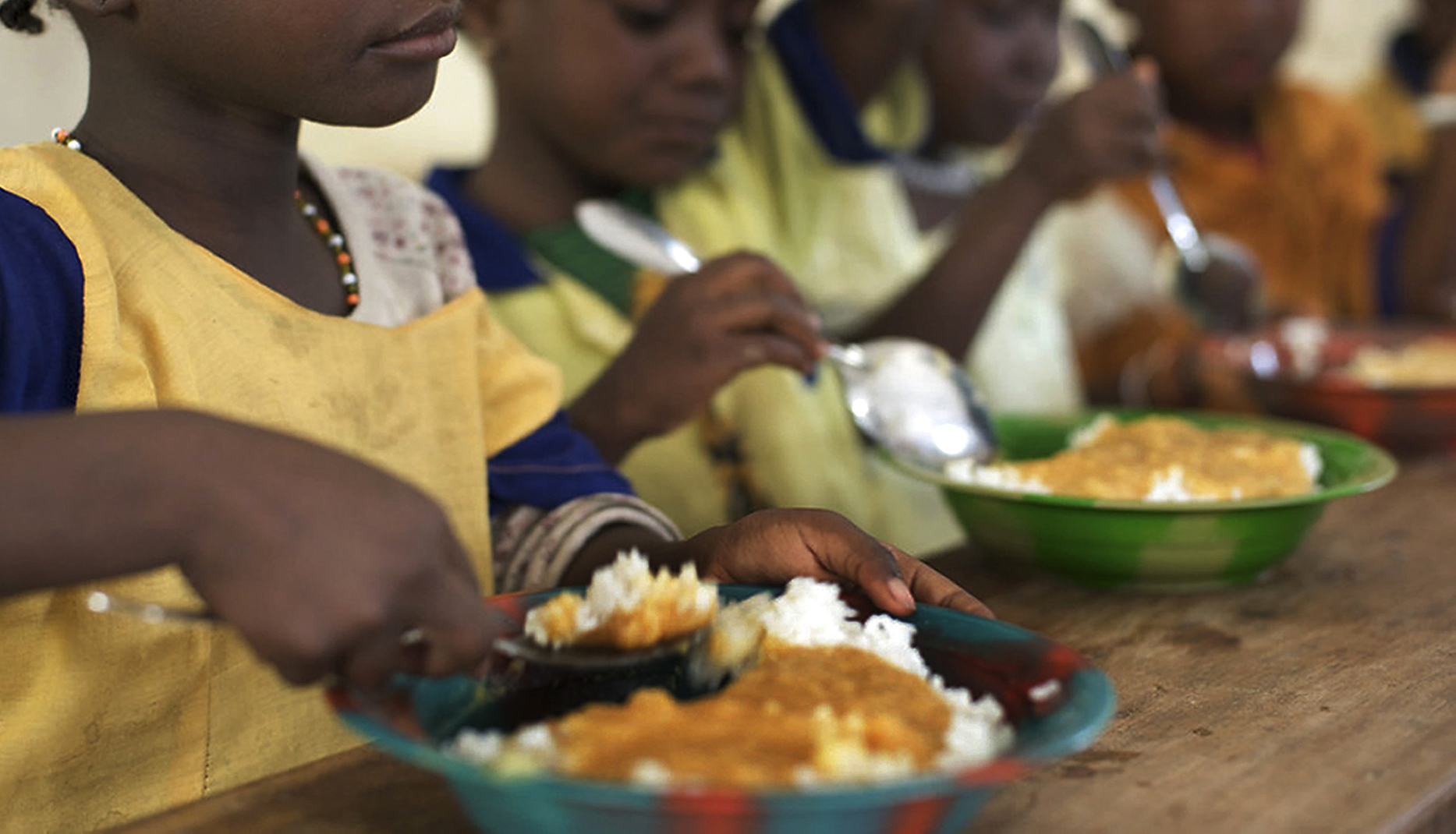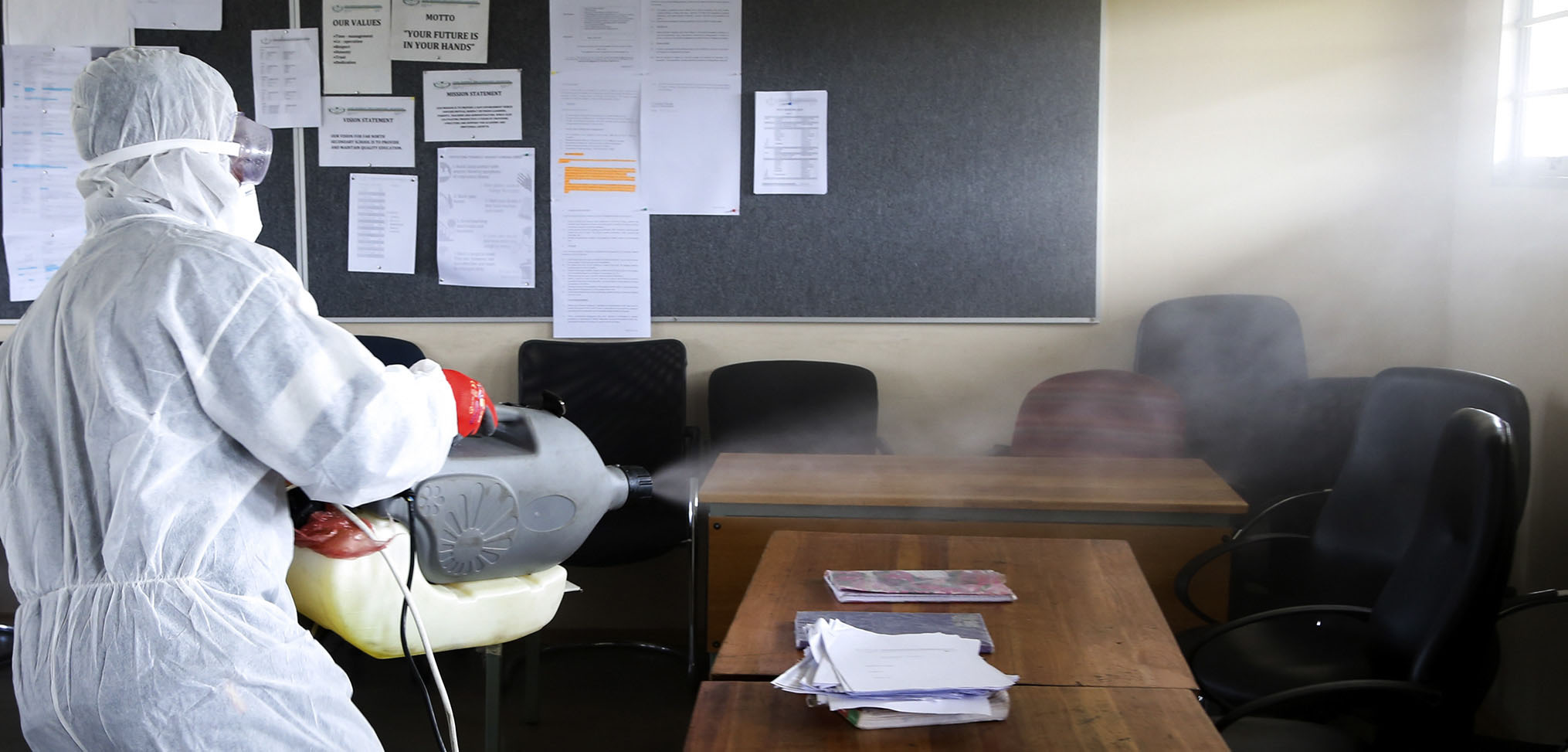On 23 February 2022, at the tabling of the Budget before Parliament, the minister of finance announced that this Budget strikes a critical balance “between saving lives and livelihoods, while supporting inclusive growth”.
In the face of growing debt and debt-servicing costs, the minister added that difficult and necessary trade-offs were required. Unfortunately, these have come, once again, at the cost of basic education provisioning that will affect learners across the country. Ensuring there is quality basic education is a crucial investment for economic growth and the reduction of inequality. Prioritising government spending on debt-servicing while continually decreasing money that should be spent on vital components such as public school infrastructure, teachers and textbooks, is a dereliction of the government’s constitutional duties and is economically misguided.
In the aftermath of two years of substantial lost learning time due to school closures and rotational timetables caused by the Covid-19 pandemic, as well as the exacerbation of the sanitation and infrastructure crises at many schools, the government needs to take deliberate steps to prioritise basic education to ensure that all learners can return to school safely and receive quality education.
While this Budget reveals an increase in expenditure on basic education in nominal terms over this Medium-Term Expenditure Framework, the annual average increase of only 2.0% is less than half of what is required to keep up with price rises in the economy of 4.5% (CPI inflation). The 2022/23 budget therefore continues the trend of austerity budgeting that has characterised spending on basic education for at least the past seven years.
 Pupils in class at a rural Eastern Cape school. The lack of prioritisation of the Funza Lushaka Bursary scheme will negatively affect poor rural schools. (Photo: Gallo Images / Foto24 / Denvor de Wee)
Pupils in class at a rural Eastern Cape school. The lack of prioritisation of the Funza Lushaka Bursary scheme will negatively affect poor rural schools. (Photo: Gallo Images / Foto24 / Denvor de Wee)
School personnel
Regarding spending on educator and non-educator salaries, most of the funding for basic education in public schools comes from the provincial equitable share (which is money transferred from the national government to provinces). While additional funds were added to the provincial equitable share to help provincial education departments with shortfalls in funding for educators and other costs, this funding is still far below inflation. In real terms, Treasury is essentially cutting the provincial equitable share at a yearly average of 1.8%, up until 2024/25. In the next three years, funding for education personnel specifically, is decreasing in real terms by 2.6%. Treasury has admitted that this “will result in fewer teachers and increased class sizes in some provinces”. And while the government has dedicated an additional R12.7-billion of the Presidential Employment Stimulus to hire teachers’ assistants for 2022/23 and 2023/24, it is unclear what will happen after this period.
This is occurring in a context where classes in many schools are already overcrowded. Teacher retention is also a major problem in South Africa and has only been amplified by the Covid-19 pandemic. More teachers are leaving the profession than are joining, and it is expected that this will worsen due to an anticipated retirement wave of teachers, which is likely to peak in 2030 and end in 2040.
 Pupils practise mathematics on a damaged blackboard in Limpopo on 18 March 2016. (Photo: Sandile Ndlovu / Sowetan / Gallo Images / Getty Images)
Pupils practise mathematics on a damaged blackboard in Limpopo on 18 March 2016. (Photo: Sandile Ndlovu / Sowetan / Gallo Images / Getty Images)
However, instead of investing funds in educating and training prospective teachers for the medium and long term, the government is continuing to underfund crucial initiatives such as the Funza Lushaka Bursary. This scheme was established to promote teaching and address the shortage of teachers in maths, technology and science in rural schools. The growth of the scheme’s funding over the next three years does not reverse the cuts previously made to it. Further, R75-million from the scheme is being reprioritised to train primary school teachers in robotics, coding and data analytics. The lack of prioritisation of the scheme will negatively affect poor rural schools serving predominantly black learners where teacher shortages are more common.
In addition, the South African Council for Educators (SACE), which is responsible for, among other things, maintaining professional and ethical standards in the teaching profession, is also negatively affected by this Budget. Over the next three years, the SACE expects to generate 81.2% of its own revenue (R279.3-million) through the collection of membership fees and interest on investments and transfers from the Department of Education (DBE). However, the DBE plans to reprioritise R9-million of its transfers over this period to train primary school teachers in coding and robotics, and it’s not clear what impact this will have on the SACE’s budget in the future. Without sufficient funds, the council cannot adequately promote the professional development of educators, which includes holding teachers accountable to a requisite professional standard of ethics in cases of serious offences including corporal punishment and/or sexual harassment of learners.
 Finance Minister Enoch Godongwana. (Photo: Gallo Images / Brenton Geach)
Finance Minister Enoch Godongwana. (Photo: Gallo Images / Brenton Geach)
National School Nutrition Programme
Regarding school nutrition, the state has committed to providing nine million learners with a nutritious meal each school day over the next three years. This will be provided through the National School Nutrition Programme (NSNP), which has been allocated R26.7-billion in total, and will ensure that qualifying learners receive a meal even on school days when they are at home either due to Covid-19 restrictions or rotational learning. While spending on the NSNP grows consistently over the next three years, SECTION27 is concerned that the increase does not consider the rising cost of feeding children nutritious meals, as food price inflation remains higher than ordinary inflation. Recent research by the Pietermaritzburg Economic Justice and Dignity Group shows that the price of an average food basket increased by 8.6% between January 2021 and January 2022. Since the cost of electricity is expected to increase over the next three years, and fuel prices are likely to rise as a consequence of Russia’s invasion of Ukraine, the group also predicts an increase in food prices over the next year. If food prices rise at a similar rate over the next three years, the NSNP will not be adequately funded to carry the cost of meals to all nine million learners.
 While spending on the National School Nutrition Programme grows consistently over the next three years, SECTION27 is concerned that the increase does not consider the rising cost of feeding children nutritious meals, as food price inflation remains higher than ordinary inflation. (Photo: Flickr / Julien Harneis / Wikipedia)
While spending on the National School Nutrition Programme grows consistently over the next three years, SECTION27 is concerned that the increase does not consider the rising cost of feeding children nutritious meals, as food price inflation remains higher than ordinary inflation. (Photo: Flickr / Julien Harneis / Wikipedia)
Public school infrastructure
In the 2022 Budget, the Education Infrastructure Grant (EIG) (which is a supplementary conditional grant that predominantly assists with the construction, maintenance, upgrading and rehabilitation of existing and new school infrastructure) will receive R38.8-billion over the next three years and includes an additional R470.5-million for the repair of school infrastructure damage caused by storms in KwaZulu-Natal. While SECTION27 welcomes the EIG’s estimated growth, we are concerned that it does not account for the resumption of hundreds of infrastructure projects that were suspended during 2020/21 when the EIG suffered significant cuts to attend to Covid-related needs. In addition to this, the risk of the reinstatement of rotational learning as a result of a resurgence of a new Covid-19 variant, school vandalism and the emerging effects of climate change on public school infrastructure (such as the increased prevalence of storms, floods and other severe weather conditions) place additional demands on the DBE’s budget, and it is uncertain whether the EIG is able to adequately address these over the next three years.
 Quality early childhood development (ECD) is vital to support children’s development and serves as the foundation for future learning in school. As with basic education, investment in ECD yields high returns and saves the government money in the long term. (Photo: Joyrene Kramer)
Quality early childhood development (ECD) is vital to support children’s development and serves as the foundation for future learning in school. As with basic education, investment in ECD yields high returns and saves the government money in the long term. (Photo: Joyrene Kramer)
Early childhood development
Despite the government’s rhetoric regarding the need for universal access to early childhood development (ECD) programmes, growth in funding is only 1.7% on average, which in real terms means funding is expected to decrease by 2.8% until 2024/25. The ECD sector is grossly underfunded and undersupported by the government, with attendance at ECD centres below 50% even before the pandemic.
Quality ECD is vital to support children’s development and serves as the foundation for future learning in school. As with basic education, investment in ECD yields high returns and saves the government money in the long term. This means that cutting funding in this crucial sector to save money and repay debt is counterproductive at best. Further, the lack of access to ECD programmes negatively affects children’s rights, such as the right to equality and education. Children who have had access to ECD programmes, who are usually wealthier, are at an advantage compared with children who do not.
While the 2022 Basic Education Laws Amendment Bill proposes that Grade R becomes compulsory, this is likely to be impossible if ECD funding continues to decrease in real terms. For the government to ensure higher ECD attendance at quality ECD centres, funding for the sector must increase radically.
The government’s continued deprioritisation of funding for basic education flies in the face of the nature of a constitutionally protected right. In particular, the right to a basic education, enshrined in Section 29(1)(a) of the Constitution, is an immediately realisable right which, unlike many socioeconomic rights, is not subject to internal qualifiers such as the state’s available resources or progressive realisation. This phrasing signals the state’s recognition of the importance of the right, and its ability to empower individuals and change lives. Its significance has also been confirmed by the Constitutional Court in cases such as Governing Body of the Juma Musjid Primary School v Essay N.O.
At an international level, the Committee on Economic, Social and Cultural Rights, in its General Comment 13, points out that education is both a right on its own, as well as a vital means for the realisation of other human rights, and adds:
 Teacher retention is also a major problem in South Africa and has only been amplified by the Covid-19 pandemic. (Photo: Gallo Images / Luba Lesolle)
Teacher retention is also a major problem in South Africa and has only been amplified by the Covid-19 pandemic. (Photo: Gallo Images / Luba Lesolle)
“As an empowerment right, education is the primary vehicle by which economically and socially marginalised adults and children can lift themselves out of poverty and obtain the means to participate fully in their communities. Education has a vital role in empowering women, safeguarding children from exploitation and hazardous labour and sexual exploitation, promoting human rights and democracy, protecting the environment, and controlling population growth. Increasingly, education is recognised as one of the best financial investments states can make.”
Cuts to funding that will severely affect basic education provisioning should therefore be carefully considered and properly justified. However, the 2022 Budget reveals again that basic education has been sidelined, and the DBE will have less money to spend over the next three years, despite the urgent need for greater investment in education. The challenges plaguing basic education, both historic and new, will not be solved until National Treasury makes a deliberate decision to be informed by human rights principles, and take seriously the non-negotiable constitutional obligation on the state to immediately realise the right to basic education. DM/MC
Demichelle Petherbridge is an attorney and Mila Harding is a legal researcher in the Education Rights Programme at SECTION27.
[hearken id="daily-maverick/9226"]




 JOHANNESBURG, SOUTH AFRICA MAY 25: A general view of Far North Secondary School being disinfected before the reopening of schools on May 25, 2020 in Johannesburg, South Africa. It is reported that the Department of Basic Education announced that Grade 12 and 7 learners will go back to school on the 1st of June 2020. Subsequently, a new adjusted school calendar will be published in the Gazette. (Photo by Gallo Images/Luba Lesolle)
JOHANNESBURG, SOUTH AFRICA MAY 25: A general view of Far North Secondary School being disinfected before the reopening of schools on May 25, 2020 in Johannesburg, South Africa. It is reported that the Department of Basic Education announced that Grade 12 and 7 learners will go back to school on the 1st of June 2020. Subsequently, a new adjusted school calendar will be published in the Gazette. (Photo by Gallo Images/Luba Lesolle)